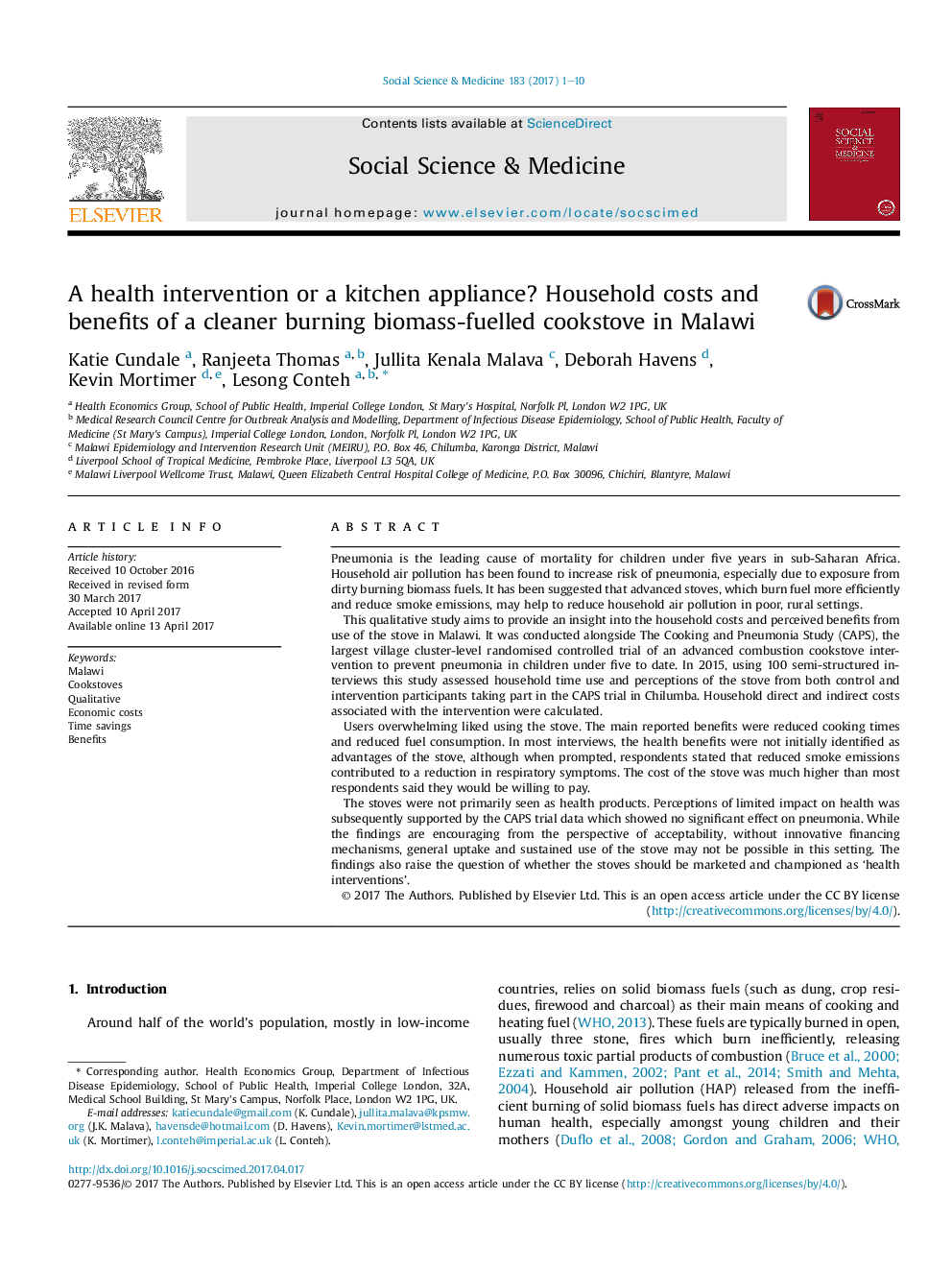| کد مقاله | کد نشریه | سال انتشار | مقاله انگلیسی | نسخه تمام متن |
|---|---|---|---|---|
| 5046548 | 1475986 | 2017 | 10 صفحه PDF | دانلود رایگان |
- The first evaluation of household perceptions of an advanced cookstove trial in Malawi.
- We investigate the intensive margin, i.e. how the technology is used and perceived.
- Significant benefits from reduced cooking and fuel collection times were reported.
- Unless prompted, respondents rarely associated the stoves with health benefits.
- The high cost of the advanced cookstove will need addressing to ensure future uptake.
Pneumonia is the leading cause of mortality for children under five years in sub-Saharan Africa. Household air pollution has been found to increase risk of pneumonia, especially due to exposure from dirty burning biomass fuels. It has been suggested that advanced stoves, which burn fuel more efficiently and reduce smoke emissions, may help to reduce household air pollution in poor, rural settings.This qualitative study aims to provide an insight into the household costs and perceived benefits from use of the stove in Malawi. It was conducted alongside The Cooking and Pneumonia Study (CAPS), the largest village cluster-level randomised controlled trial of an advanced combustion cookstove intervention to prevent pneumonia in children under five to date. In 2015, using 100 semi-structured interviews this study assessed household time use and perceptions of the stove from both control and intervention participants taking part in the CAPS trial in Chilumba. Household direct and indirect costs associated with the intervention were calculated.Users overwhelming liked using the stove. The main reported benefits were reduced cooking times and reduced fuel consumption. In most interviews, the health benefits were not initially identified as advantages of the stove, although when prompted, respondents stated that reduced smoke emissions contributed to a reduction in respiratory symptoms. The cost of the stove was much higher than most respondents said they would be willing to pay.The stoves were not primarily seen as health products. Perceptions of limited impact on health was subsequently supported by the CAPS trial data which showed no significant effect on pneumonia. While the findings are encouraging from the perspective of acceptability, without innovative financing mechanisms, general uptake and sustained use of the stove may not be possible in this setting. The findings also raise the question of whether the stoves should be marketed and championed as 'health interventions'.
Journal: Social Science & Medicine - Volume 183, June 2017, Pages 1-10
